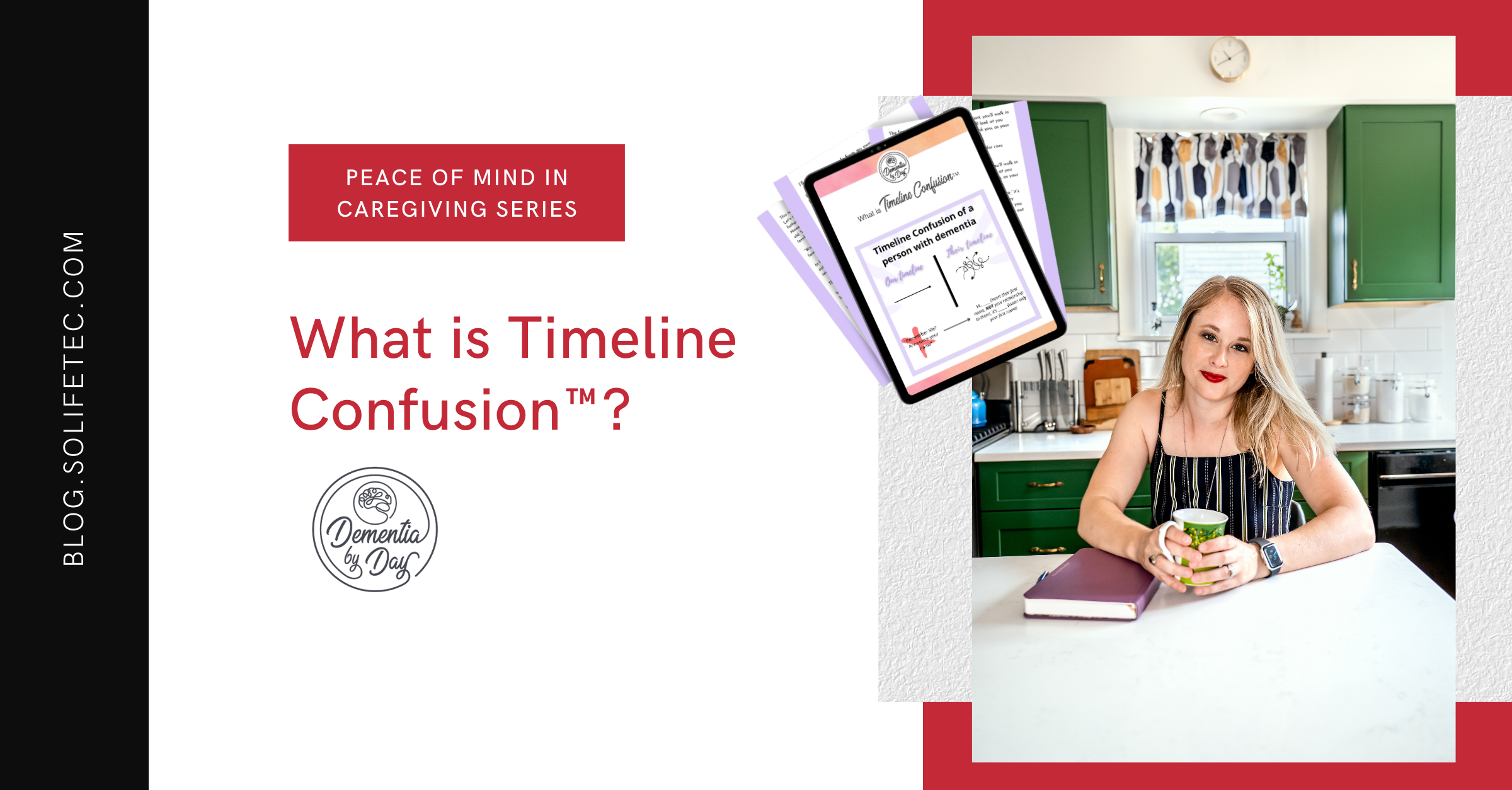Peace of Mind in Caregiving | What is Timeline Confusion™?

In collaboration with Rachael Wonderlin, Dementia By Day, Consultant to Source of Life Technologies
Has one of these thoughts ever crossed your mind?
- “What if I go visit her and she doesn’t know who I am?”
- “What if he suddenly forgets me?”
- “What do I say if he asks, ‘Who are you?’”
- “What do I do if she asks about me, but I’m standing right there?”
- “How do I address my mom if she isn’t always sure who I am?”
All of these questions are common struggles for care partners of those living with dementia.
The fear usually goes like this: at some point, you’ll walk in to visit your loved one, and that person will look at you with a blank stare. “Who are you?” they’ll ask you, as your own eyes fill with tears.
All of these questions are common struggles for care partners of those living with dementia.
Timeline Confusion is the concept that time isn’t linear for a person living with dementia. If the individual cannot identify their loved ones, it isn’t because they don’t know them or love them—it’s because these people don’t fit on their timeline. I created this term to describe what is often a big, scary concept for care partners: the fear that they’ll no longer be relevant or known to the person living with dementia.
This story about Nick and Alicia illustrates perfectly what Timeline Confusion looks like in people living with dementia, and how powerful it is when a caregiver is willing to enter their reality:
Nick was probably one of the best caregivers I’d ever met. It wasn’t just that he visited his mother often, it was how he visited her. He was patient and kind—really, he just understood dementia care. He got it.
One day, I approached the pair as they walked quietly down the hall. Alicia smiled and nodded at everyone she passed, sometimes whispering, “How do you do!”
“Hey, Alicia,” I said. “We’re having a piano player come in to sing and play music for us. Would you like to come listen?”
“Ah, yes!” she smiled back. “My husband is a great singer,” she said, motioning to her son.
Nick smiled and did not correct her. He put his hand gently on her shoulder and said to me, “We’ll be over there soon.”
I saw Nick again a few minutes later while his mom was occupied with some other residents. “Nick,” I said. “Does your mom usually think that you’re her husband?”
Nick said something that I’ll never forget: “Sometimes I’m me, sometimes I’m my brother, sometimes I’m my dad, and sometimes I’m just a friend. But she always knows that she loves me,” he smiled.
Nick had nailed it. He understood that, because his mom thought it was 1960, she would have trouble placing him on a timeline.
He knew that his mom recognized him and he knew that she loved him. However, because of her dementia, she thought it was a different year. And, in that year, he would’ve been a teenager.
Using context clues (however mixed up the clues were) Alicia had determined that Nick was her husband: he was the right age, he sure sounded and looked like her husband, and she believed that her son was a young man.
This is the truth that I like to share with families about Timeline Confusion: It’s not that the person living with dementia doesn’t recognize you, it’s that they can’t place you on a timeline.
If you are looking for more information visit https://rachaelwonderlin.com/dementiabyday/
From senior care fall strategies to online engagement and mobile app opportunities, healthcare shouldn’t be reactive - it should be proactive.
Doors have been opened to on-demand healthcare and it turns out the overwhelming majority of patients, physicians, families and therapists want to continue down that path. The decision to modernize your senior care strategies is a big one and doesn’t happen overnight. Talk to the Source of Life Technologies team for the guidance and direction you need to make the change in your organization or home.

